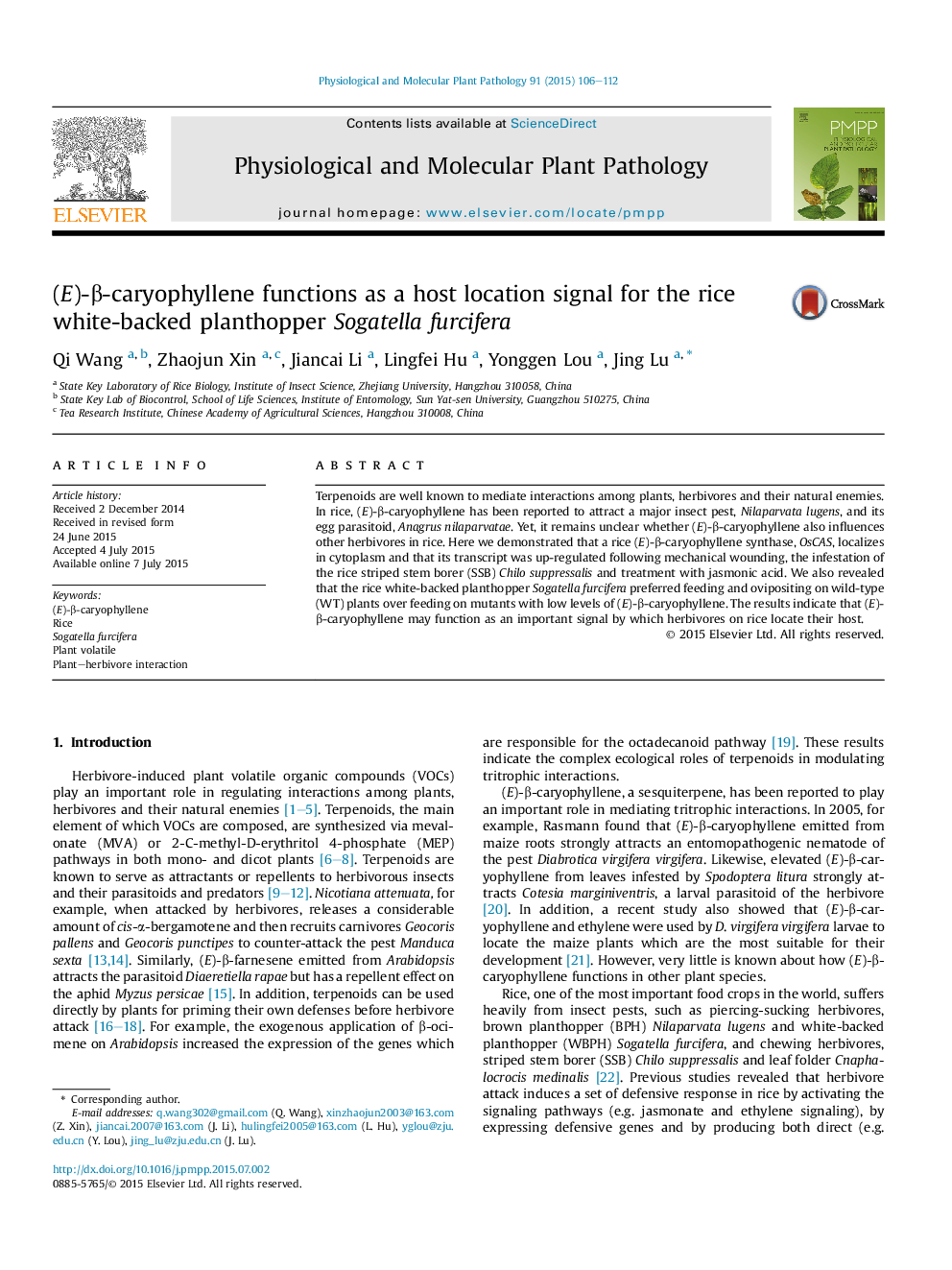| کد مقاله | کد نشریه | سال انتشار | مقاله انگلیسی | نسخه تمام متن |
|---|---|---|---|---|
| 2836269 | 1570848 | 2015 | 7 صفحه PDF | دانلود رایگان |

• OsCAS localizes in cytoplasm.
• OsCAS transcript was up-regulated by wounding, herbivory and JA treatment.
• (E)-β-caryophyllene functions as a host location signal for Sogatella furcifera.
Terpenoids are well known to mediate interactions among plants, herbivores and their natural enemies. In rice, (E)-β-caryophyllene has been reported to attract a major insect pest, Nilaparvata lugens, and its egg parasitoid, Anagrus nilaparvatae. Yet, it remains unclear whether (E)-β-caryophyllene also influences other herbivores in rice. Here we demonstrated that a rice (E)-β-caryophyllene synthase, OsCAS, localizes in cytoplasm and that its transcript was up-regulated following mechanical wounding, the infestation of the rice striped stem borer (SSB) Chilo suppressalis and treatment with jasmonic acid. We also revealed that the rice white-backed planthopper Sogatella furcifera preferred feeding and ovipositing on wild-type (WT) plants over feeding on mutants with low levels of (E)-β-caryophyllene. The results indicate that (E)-β-caryophyllene may function as an important signal by which herbivores on rice locate their host.
Journal: Physiological and Molecular Plant Pathology - Volume 91, July 2015, Pages 106–112